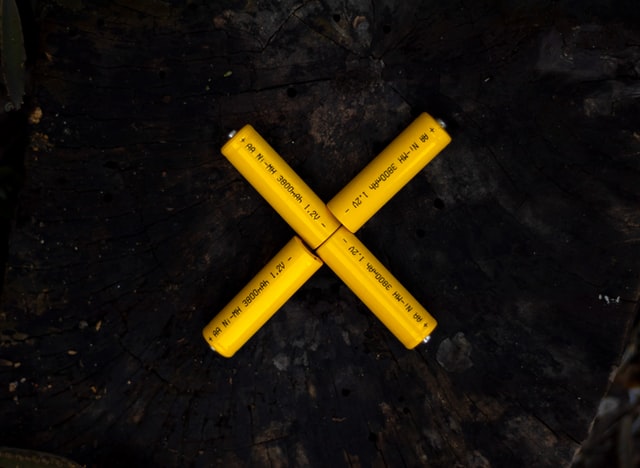The Benefits of Lithium Ion Solar Batteries
There are many benefits of using Lithium Ion Solar batteries. These batteries are better for the environment and are safe to use indoors or in an insulated area. You should also keep in mind that Lithium Ion Solar batteries are not safe to use in sub-zero temperatures. But if you have a low-end system that isn’t used very often, you may want to consider these batteries.
These batteries take up very little space. They also have a high DoD, meaning they are able to store a higher amount of energy than other types of batteries. This means that you can use more of the energy that you generate. Lithium solar batteries also have a longer lifespan than other types of batteries. Unlike lead acid batteries, lithium solar batteries also have higher efficiency, which means that you can use more energy for longer periods of time.
In addition to their longer lifespan, lithium-ion solar batteries are also more environmentally friendly. They have an average DoD of 95%, compared to 50% or less in lead acid batteries. Because of this, they can store more energy without having to be recharged as often. Plus, they last a long time, with many manufacturers providing a minimum 10 year warranty for their products. This is great news for people looking for an environmentally friendly solar battery for their home.
Because lithium-ion batteries are made of minerals that are important to our environment, we should consider disposed of them properly. This will reduce the risk of contamination and help the environment in the long run. But before you start converting to solar energy, you must understand more about the environmental costs of lithium-ion batteries. You’ll be happy you did. Aside from that, lithium-ion solar batteries are cost-effective as long as you maintain the system.
Lithium-ion solar batteries are extremely compact and lightweight, which is perfect for portable devices. They also have a high capacity. This means they hold a lot of energy. Unlike conventional batteries, they can last a long time. However, they are expensive and require special care in storage. And you should be careful not to overcharge them. They are fragile and should be taken care of when not in use.
A lithium-ion battery has many advantages over lead-acid batteries. First, it has no moving parts. Second, it’s much lighter than lead-acid and does not produce heat. As a result, they’re ideal for setups with limited space. And third, they’re easy to install. You can add them to an existing battery pack, and they can be wall-mounted, floor-mounted, or rack-mounted.
Advantages and Disadvantages of Lead Acid Solar Batteries
In this article, we’ll look at the advantages and disadvantages of Lead Acid Solar batteries and how they compare to other types of solar batteries. As you’ll see, the benefits of Lead Acid Solar batteries outweigh the drawbacks of other types. And as always, we’ll cover the maintenance needs, too. But what are the main differences between the two types of lead acid batteries? What makes them superior to the others?
While the primary advantage of Lead Acid Solar batteries is their long lifespan, they are also prone to problems related to lead sulfate and corrosion. This is because the negative electrode of a lead battery is prone to build-up of lead sulfate, which inhibits the battery from discharging efficiently. The solution of this problem is to replace the negative electrode with a carbon-based one. This will improve the lifespan of the battery and increase its performance.
Another advantage of Lead Acid Solar batteries is their low maintenance requirements. They don’t require maintenance and are capable of storing huge amounts of energy. And since they’re lightweight and compact, they’re ideal for tiny homes and RVs, as well as boats. Moreover, they don’t require any specialized maintenance, which means they’re perfect for set-and-forget applications. If you’re in need of a long-lasting and powerful battery, choose a Lithium-ion battery instead.
One disadvantage of lead-acid solar batteries is that they are heavier than lithium-ion batteries. Therefore, they’re more difficult to transport or install. Therefore, many consumers are turning to lithium-ion solar batteries as they’re lighter and easier to handle. They also tend to last longer than lithium-ion batteries. You should also consider the cost of lithium-ion solar batteries if you plan to install them in your home.
When using Lead Acid Solar Batteries, you should keep them in a climate-controlled space. Aside from the fact that they can last longer than other solar batteries, heat can also accelerate chemical reactions, reducing their life expectancy and requiring more frequent replacements. Cold temperatures reduce chemical reactions and slow electron movement. Thus, cold temperatures are ideal for your solar batteries. When using them, you’ll have less worry about damaging your batteries and enjoying a longer life.
Lithium technologies offer many advantages over lead-acid batteries. However, they are not appropriate for every solar installation. In addition, they tend to discharge at a much slower rate. While lead-acid batteries have a proven track record, they’re not the best choice for every solar installation. Lithium-ion solar batteries don’t require maintenance and last longer. They’re also a much cheaper alternative to lead-acid solar batteries.
If you’re looking for an inexpensive solar battery, consider flooded lead-acid technology. These batteries have a long history in the solar industry, and they’re still the most commonly used type in solar systems. While they’re cheaper up front than lithium-ion solar batteries, they’re still a good choice for off-grid installations. Fortunately, these batteries also offer great value and can be used in newer technologies to create energy-efficient systems.
A deep-cycle battery should be taken care of. This is because over time, sulphation crystals will build up in the battery. These crystals can’t convert lead to lead oxide, and their capacity will decrease. Eventually, their lifespan will become less than half their original value. So, it’s important to take good care of your batteries and make sure you recharge them regularly. This will ensure that they last longer.
While Lead Acid Solar batteries tend to be the cheapest, they’re also the most maintenance-intensive. In addition to regular maintenance, flooded lead-acid batteries require regular additions of distilled water to replenish them. These batteries also take up more space than other types of solar batteries. You’ll want to install them in a ventilated area to ensure they won’t overheat. Lead Acid Solar batteries have a shorter lifespan than other types of batteries, usually between two and seven years.
Another difference between lithium-ion and lead acid solar batteries is their recycling rates. Lead Acid solar batteries are more frequently recycled than lithium-ion ones. Lithium-ion solar batteries are more environmentally friendly, but have lower recycling rates than their lead-acid counterparts. Lithium-ion home batteries are a new technology, and recycling machinery for them is expensive and still in its development stage. However, it’s expected that soon lithium-ion home batteries will have the ability to rival or even surpass lead-acid solar batteries.
The benefits of lead-acid solar batteries are well-documented. They’re highly reliable and widely used for off-grid solar power storage. But newer technologies are quickly overtaking them in popularity. Lithium-ion solar batteries are increasingly used in electric vehicles and are fast becoming the standard for off-grid solar battery storage. The advancement of lithium-ion batteries is driven in part by the EV industry.

